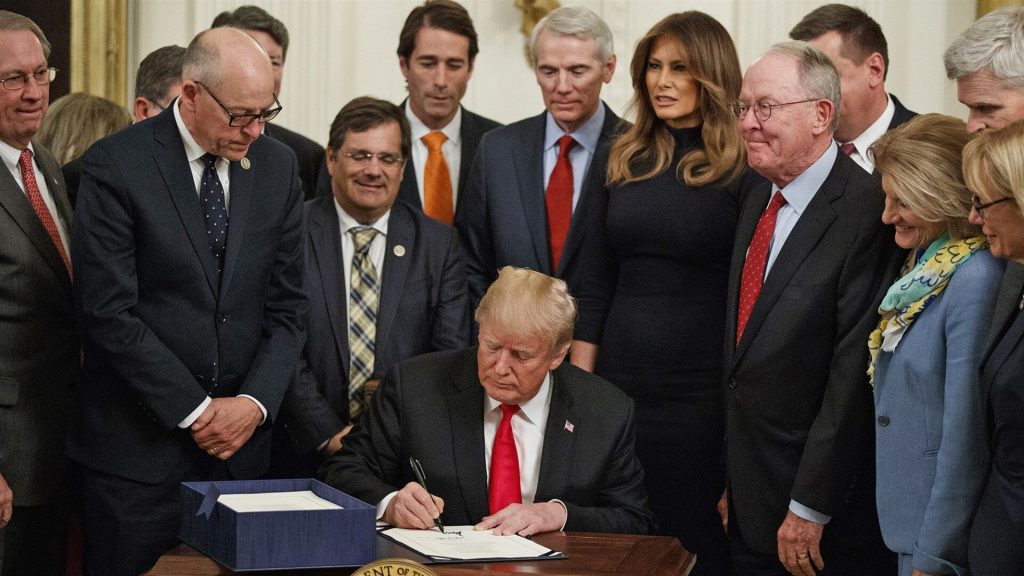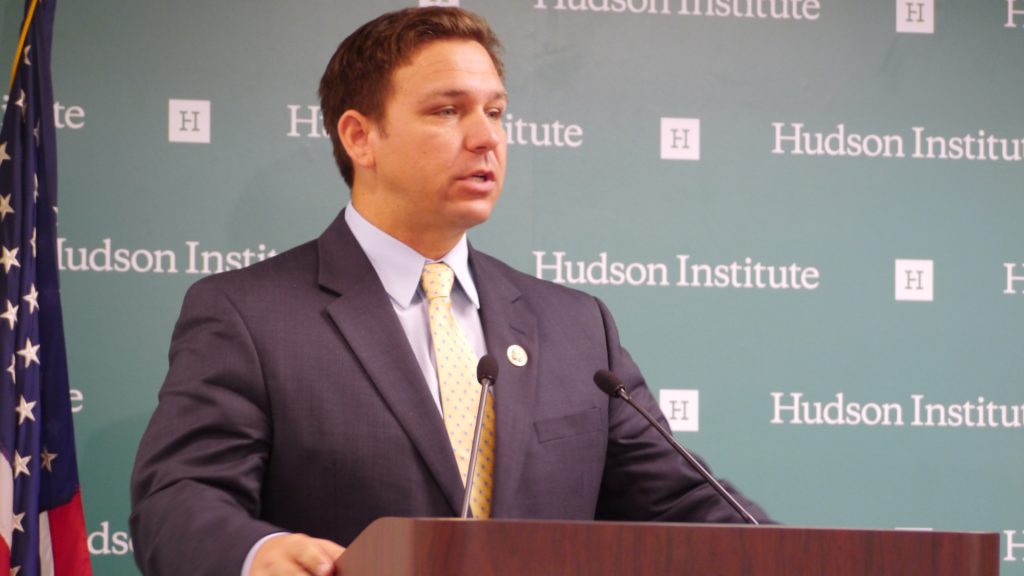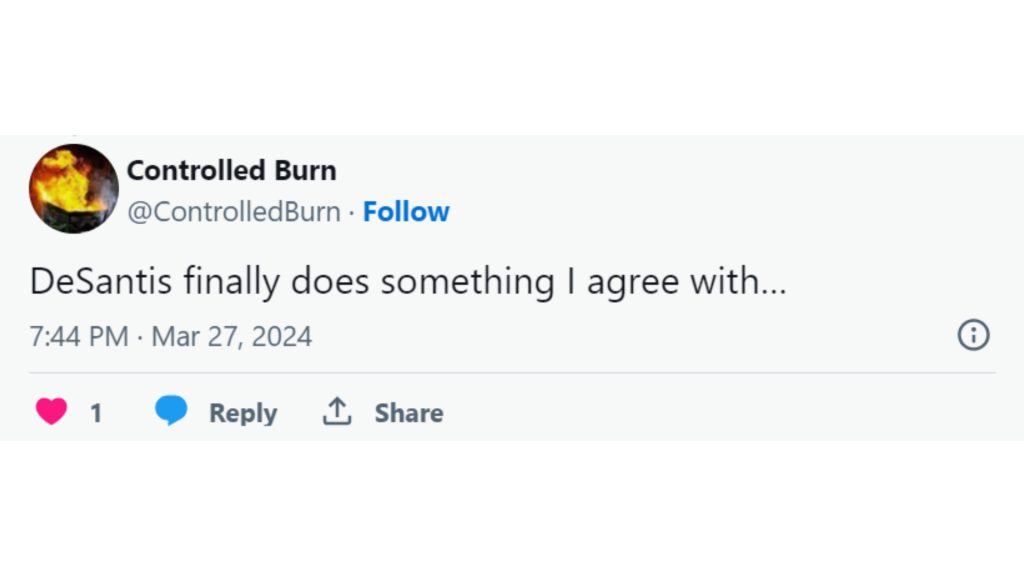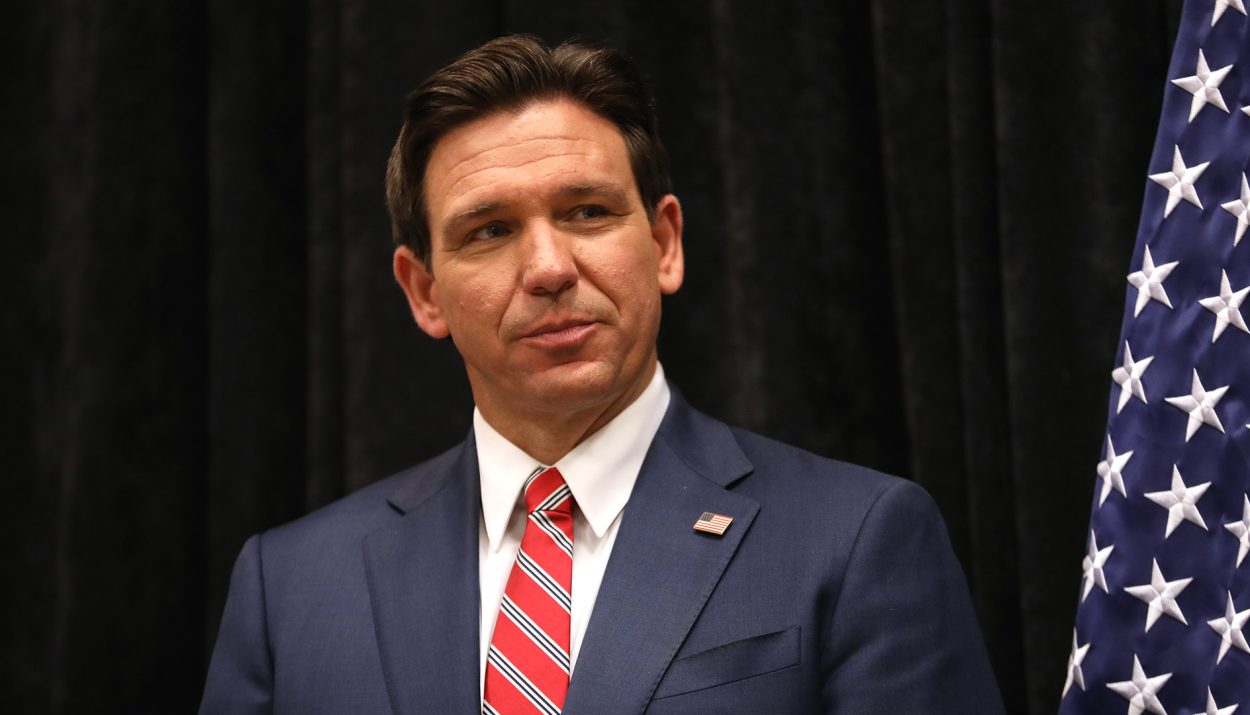Ron Desantis is far from the most popular politician in America right now. The governor of Florida has made multiple decisions in the recent past that have been less than well-liked, and his short-lived presidential run catapulted him further into the national spotlight and national opinion.
Doubling Down on Polarizing Policies
Desantis’ political career since he was elected to the governor’s seats has centered around doubling down on some of the more polarizing policies espoused by former president Donald Trump. This has included policies regarding LGBTQ+ communities as well as immigration.

His stance on immigration has, unfortunately, had a massive impact on the state of Florida. Desantis has come out hard against illegal immigration and has made his stance on the border a significant part of his political image, to the detriment of Florida. Many industries are now suffering because immigrants refuse to come to the Sunshine state, which is massively impacting Florida’s GDP.
Stance on Culture Wars
Additionally, Desantis’ stance against “culture wars” and “woke policies” have found him at the center of a controversy regarding one of the most litigious companies in the United States.

When Desantis removed Disney’s special zoning status for the Magic Kingdom in Florida, he stated that it was due to Disney pushing “woke” policies that were violating parental and citizen rights in his state. This decision to revoke the status was implemented after Disney expressed public disapproval of the “Don’t Say Gay” bill.
A Disney Lawsuit
Disney subsequently sued Desantis, claiming that the revocation of their special legal status constituted a violation of the company’s First Amendment rights. The perception, both public and legal, was that Desantis had retaliated against the company due to their disapproval of his laws.

The battle between Desantis and Disney was public and ugly, and had a deeply negative effect on public perception of the governor. Disney changed their plans to build an expansion of the Magic Kingdom in Florida, affecting job numbers in the state, and Desantis was painted as an “anti-business” politician who wasn’t looking out for the needs of his constituents.
Criticisms from Other Republicans
Other Republicans have come out against Desantis in this particular lawsuit, including fellow presidential candidates Nikki Haley and Donald Trump himself.

The lawsuit was taken to court, and a Florida judge ruled in favor of Ron Desantis in January of this year. Disney was undeterred, though, filing an appeal through the 11th Circuit Court, which was put on hold in March when Desantis and Disney announced a settlement of the pending state court lawsuits. The settlement was made under the terms of renegotiating the development agreement with the state of Florida, and the federal appeal remains in place while those negotiations play out.
Signing a Popular Bill
Needless to say, Desantis has faced his fair share of controversies during his tenure as governor. He’s painted himself as a friend to the far-right, and has alienated himself from many moderate Republicans through his endorsement of Donald Trump’s presidential campaign.

In spite of these facts, Desantis recently signed a bill into law that has found a fair number of supporters on both the right and the left. The internet has lauded Desantis for his bill, which ends the “squatter’s scam” in the state of Florida.
Toughens Penalties for Squatters
The bill was signed into law on Wednesday, March 27, and toughens penalties for individuals who reside in homes, apartments, and other buildings illegally. It also gives law enforcement more authority to pursue them.

The new law goes into effect on July 1, and aims to prevent property owners from having to endure drawn-out and costly legal actions to evict squatters. Squatter’s rights are a tricky proposition in America, given that some state laws explicitly protect squatters and require landlords and homeowners to deal with the situation quickly and legally.
About Squatter’s Rights
Squatters rights, essentially, mean that a person might acquire the land or title owned by someone else if they follow specific requirements. Each state has different specifications regarding squatter’s rights, which means that each state has different measures for evicting squatters.

If a person resides continuously on a property for a certain length of time, between 5-20 years, does so without permission, and pays taxes on the land, there’s the possibility that they could file for ownership of the property legally. Desantis’ new law seeks to make it easier for landlords to evict squatters, and prevent this exact scenario from happening.
Desantis’ Statement
Desantis released a statement regarding the new law after signing it. “We are putting an end to the squatter’s scam in Florida. While other states are siding with the squatters, we are protecting property owners and punishing criminals looking to game the system.”

The specifics of the law are fairly simple. Under the new guidelines, if someone is on the property illegally, has been informed but has refused to leave, and is not involved in a tenant dispute, landowners may simply submit a complaint with local police enforcement, who will then take actions to remove them quickly.
Imposing Further Sanctions
This implies that, should they not have the appropriate documentation to prove that they are legal residents of an area or property, individuals could be removed by authorities from a home quickly and without fuss.

The law also imposes severe sanctions against squatters, such as making it a first-degree crime to fabricate statements that fraudulently transfers property rights. It also creates a first-degree felony crime for “knowingly advertising the sale or rent of a property without legal authority or ownership.”
Florida Leading the Nation
Regarding the law, Florida Attorney General Ashley Moody said, “Florida is once again leading the nation, this time in securing our state against squatters. Biden has allowed millions of illegal immigrants to flood across the border. After video evidence of their plan to take over homes emerged, we’re ensuring Floridians are protected from this egregious and brazen scheme.”

The bill passed through the Florida legislature with wide, bipartisan support, and quickly made its way to Desantis’ desk for signing. This is merely the latest bill that Desantis has signed tightening restrictions on existing laws, but it is one that appears to have significant support.
Subheading
The internet came out in wide favor of this new law, following its passing. Individuals on X, formerly known as Twitter, praised Desantis for signing the law.

One person declared, “What a leader!” and another said, “More states should follow this law.” And one individual went so far to say, “Desantis finally does something I agree with.” Desantis is a polarizing governor, but in this, it appears that he has done something right.
Protecting Property Owners
This new law helps to clarify some of the procedures regarding squatters in the state of Florida. Up until this new law was passed, squatting was considered a civil matter, which couldn’t be handled by the police. This made evicting squatters both an expensive and risky proposition for homeowners, who could be at risk of losing their property.

The new law protects Florida property owners, and gives the cops greater ability to do their jobs and protect Floridians. Desantis may have had missteps in the past, but many believe that this is a long-overdue change necessitated by a changing world.
Other States Following Florida
Depending on the success of this new law, it’s possible other states will follow in Florida’s stead. While there are some states that explicitly protect squatter’s rights, others will likely look to protect property owners further, exactly as Florida has.

It’s an ongoing development in the conversation around housing and the cost of living, and one that doesn’t look to be ending anytime soon. Unfortunately for squatter’s rights activists, it appears that this might not be a battle worth fighting. It may be more beneficial to focus efforts in other places, and let these new laws take effect.






